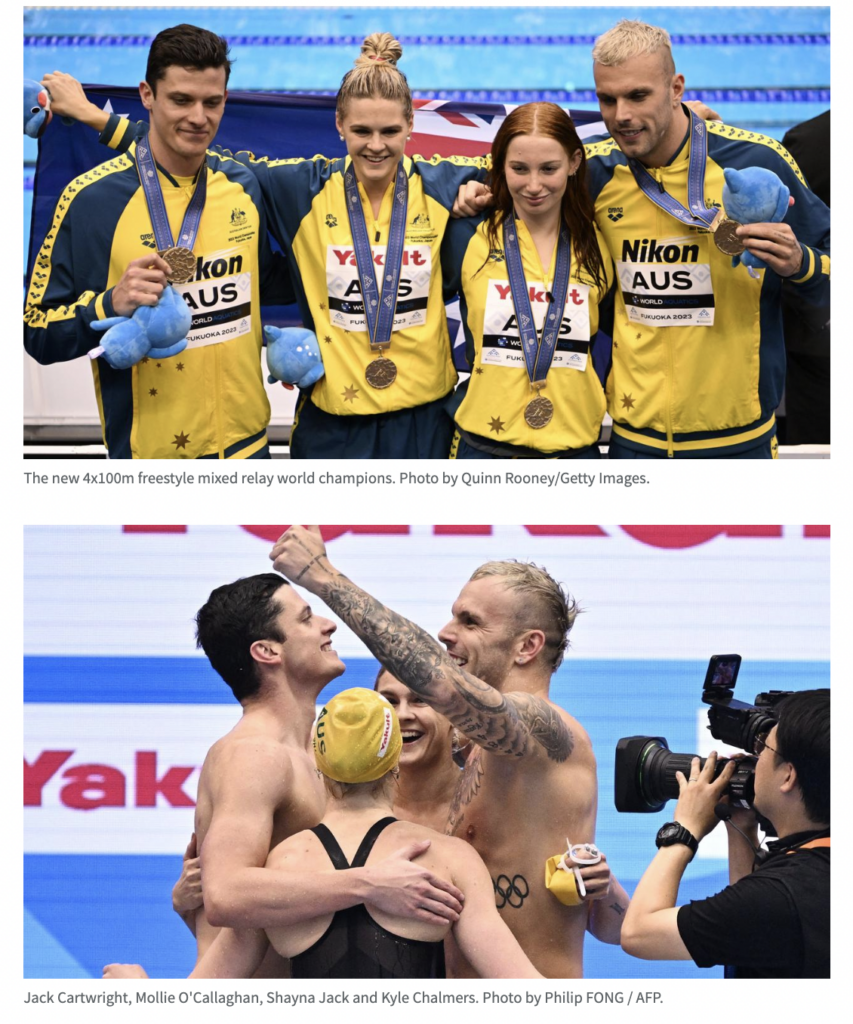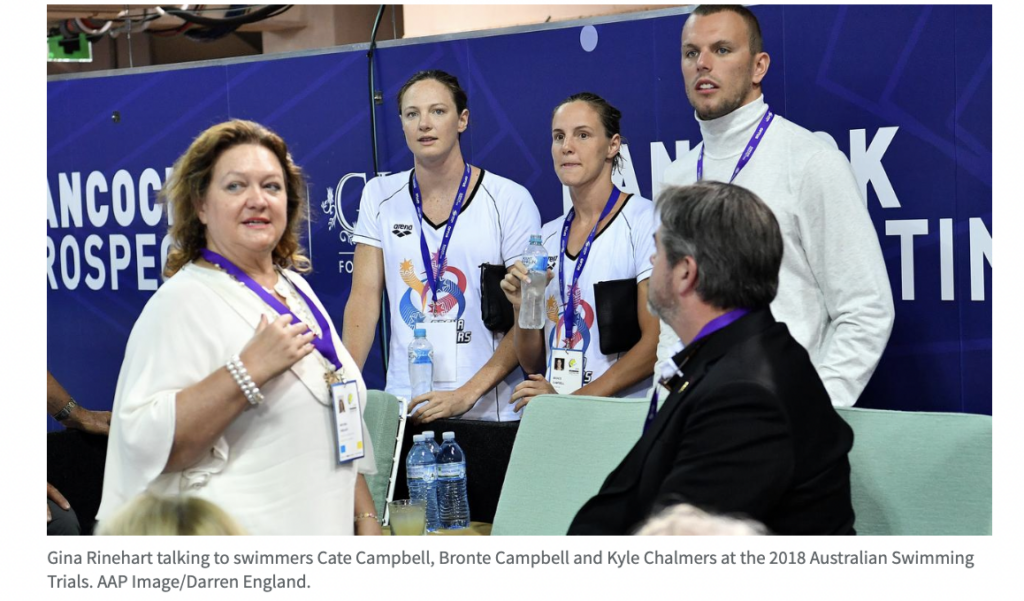Article courtesy of the Chronicle.
Australia’s richest woman Gina Rinehart has made an eye-catching appearance on a day when the Aussie swimming team went berserk.
Australia’s richest woman Gina Rinehart picked a bloody good time to make a surprise poolside appearance at the 2023 World Aquatics Championships.
The mining mogul on Saturday watched on as the Dolphins continued to show their class with another series of gold medals.
Australia has blown the American team out of the pool with 13 gold medals in Fukuoka. Heading into the final day of competition in Japan, Australia has an overwhelming lead on the medal tally with China (five gold) and the United States (four) nowhere near it.
Australia snatched another three gold medals on Saturday night with Kaylee McKeown making it a backstroke trifecta with victory in the 200m backstroke.
Cameron McEvoy earlier won gold with an absolutely blistering swim in the 50m freestyle.
McEvoy, 29, is a three-time Olympian and has reinvented himself into a bulked up sprinting beast after making his name as the fastest Australian man to swim the 100m freestyle.
His incredible swim was matched by a world-record snapping swim by the Aussie 4x100m mixed freestyle relay team which powered away to a win by two seconds.
The team of Shayna Jack, Mollie O’Callaghan, Kyle Chalmers and Jack Cartwright were surprisingly subdued after making history when O’Callaghan touched the world in a new record time of 3:18.83.
It was the third world record set by an Australian relay team this week.

O’Callaghan was a member of all three teams and also set an individual world record in the women’s 200m freestyle.
Jack was among the Aussie swimmers to thank Rinehart when speaking to the world’s media after the race.
“We couldn’t be prouder and also just to have Gina in the crowd supporting us, that’s amazing,” she said on Channel 9.
“I just wanted to go out there and give my absolute best. I did have the fifty before it but I just wanted to lift for these guys and bring it home strong and that’s what I did. We gave Mollie a chance to come home even stronger. We’ve all put a great race together to get that world record and come home with the gold.”
Members of the Aussie team were also seen celebrating with Rinehart poolside and photos posted on Rinehart’s official website showed her alongside Chalmers and posing for photos with members of the team from her grandstand seat.
Rinehart has a long history of supporting the Aussie swimming team, having stepped in to be the Dolphins’ major supporter in 2015 at a time when Swimming Australia had been unable to find a major sponsor.
Rinehart’s company Hancock Prospecting has since become the major financial donor for several Australian Olympics sporting organisations — but it is no secret the Australian swimming team has always been her darling.
Her appearance in Fukuoka comes at a time when the Australian netball team is beginning its Netball World Cup campaign in South Africa.
The Diamonds were last year rocked when Hancock Prospecting ultimately withdrew a sponsorship arrangement reported to be worth $15 million.
















